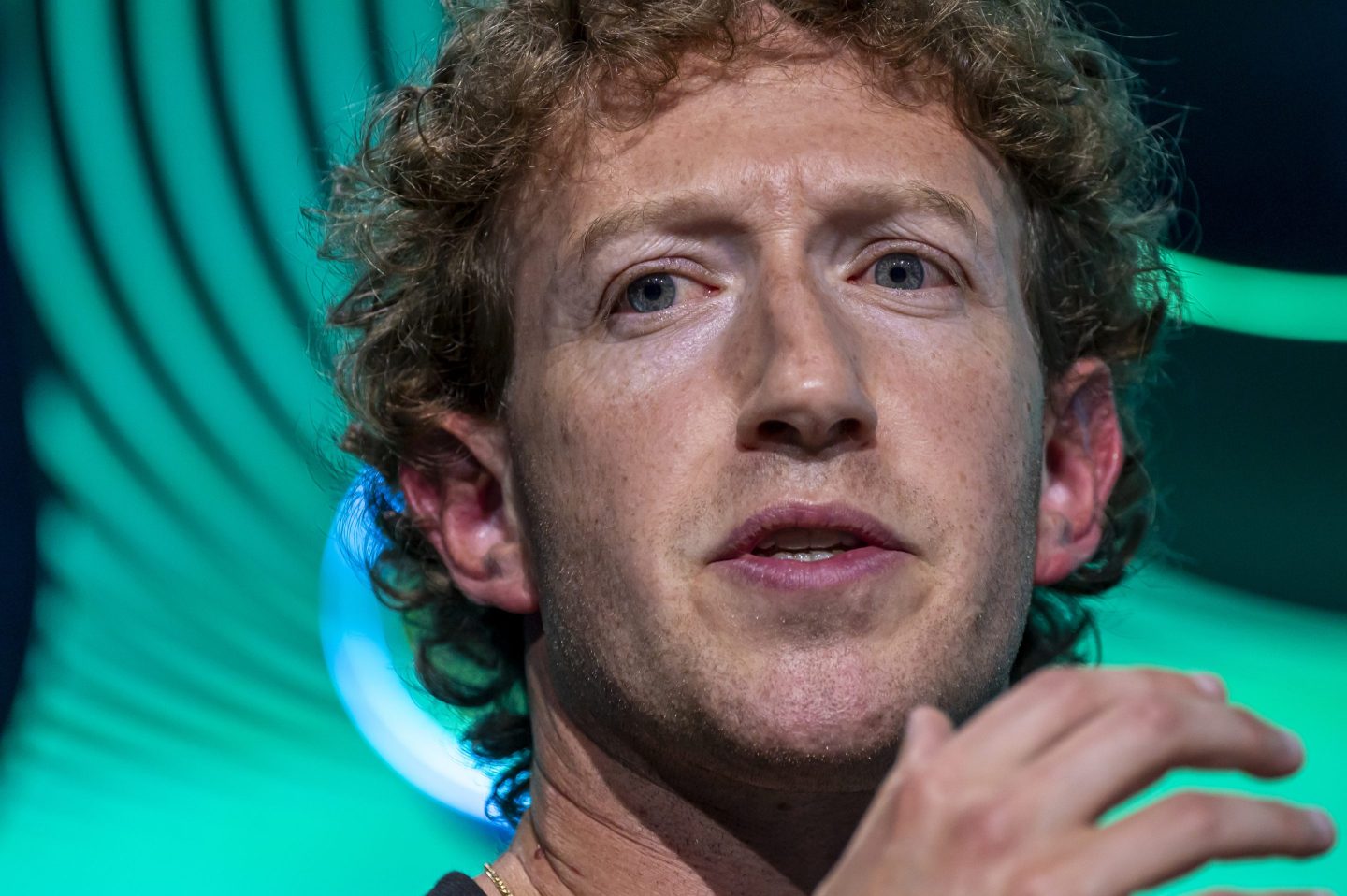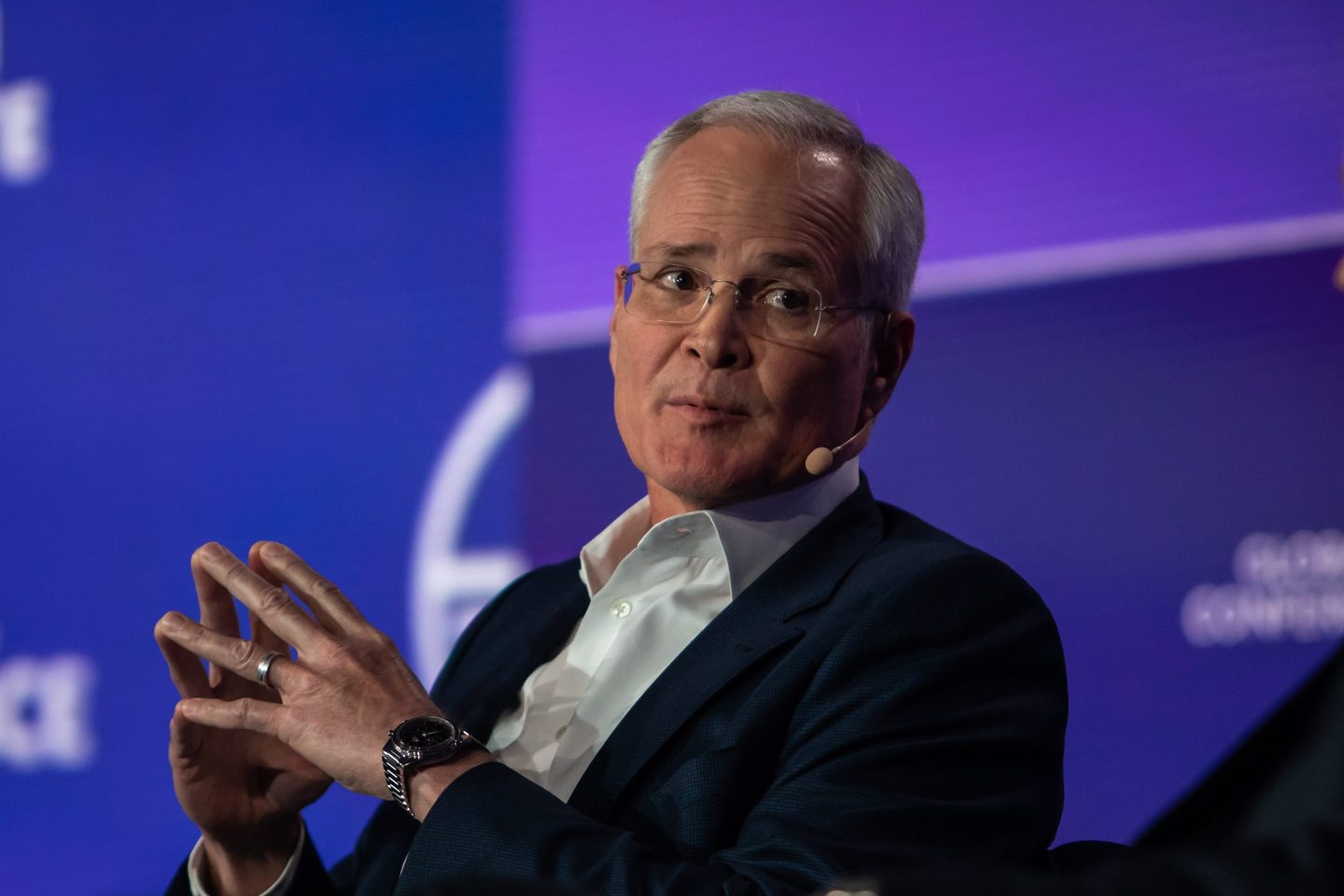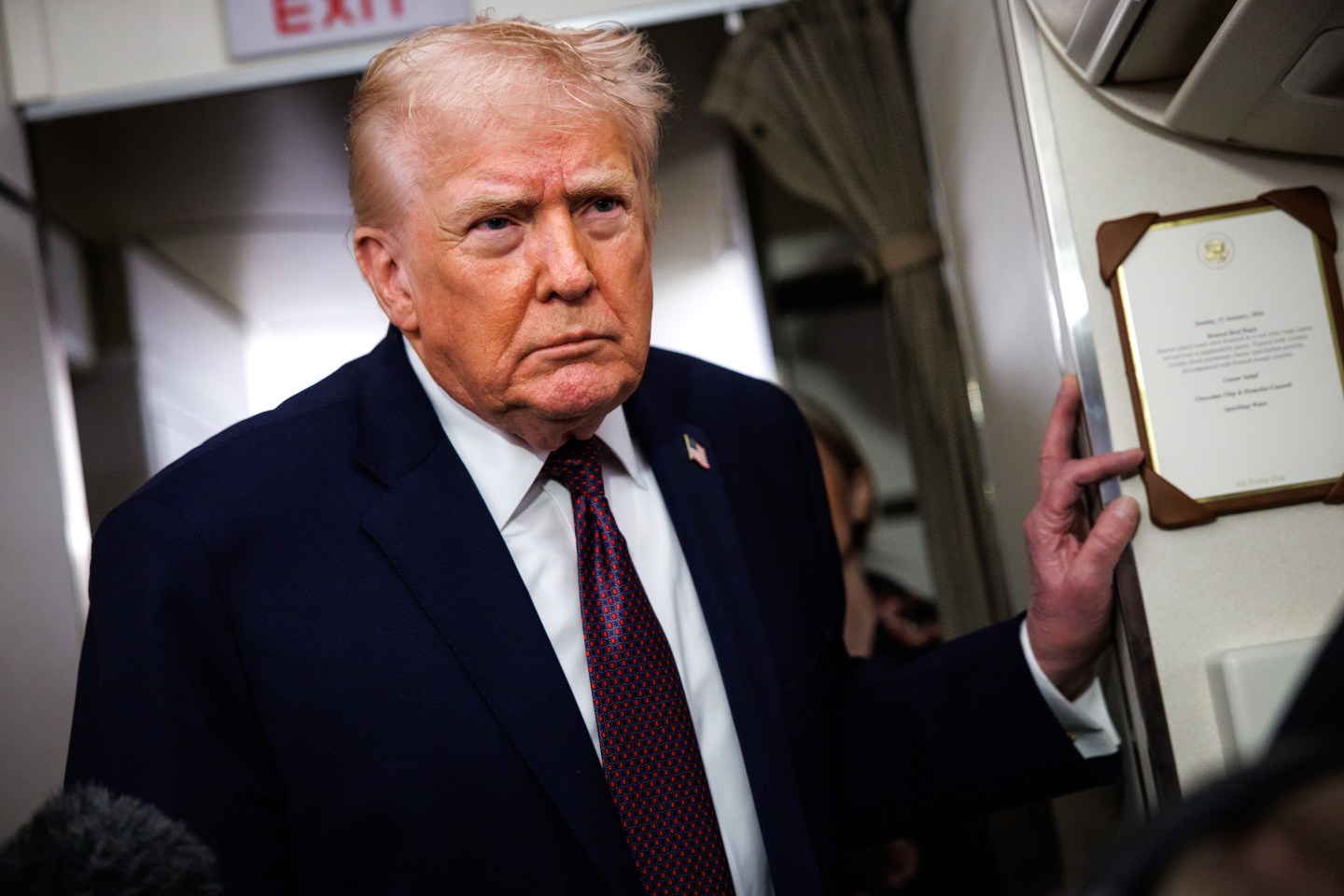The Marissa Mayer leadership saga continues, and the latest developments again look dire for our protagonist. SunTrust Robinson Humphreys analyst Robert Peck yesterday issued a report listing ten possible successors for Mayer as CEO of Yahoo. The report by itself might not have meant much; speculating about CEO succession is a favorite spectator sport on Wall Street. The bad news is that Yahoo stock went up, apparently in response to Peck’s report.
The bigger picture is that a consensus seems to be forming around the view that Mayer’s rescue plan for the company isn’t working. Most notably, many of the company’s high-level executives are bailing, more than a dozen of them in the past year. At least three media outlets (Re/code, the WSJ, and Forbes) have reported independently that at a meeting of top managers in October, Mayer demanded that they promise to stay with the company for the next three to five years. That’s a desperation move, and soon afterward, more executives quit.
Customers, which are mainly advertisers, are rendering their verdict, and it isn’t hopeful: Revenues came in way below expectations last quarter, and the company cut its forecast of revenue for this quarter. Operating profit plunged last quarter as the company continues to spend big on implementing Mayer’s strategy, which is costing more than it’s bringing in. That pattern isn’t always bad; new strategies often start out that way. But Mayer has been CEO for 3 ½ years now, and the Internet is a fast moving environment. At this point you’d expect at least a few more encouraging signs. Her stated outlook for the business suggests she doesn’t have any strategic bullets left to fire.
Which is why the most important constituents determining Mayer’s fate, investors, also seem to be concluding that the game is pretty well lost. Virtually all of Yahoo’s market cap is accounted for by the value of its holdings of Alibaba and Yahoo Japan plus its net cash. Its operating businesses are worth almost nothing, investors say. The market reaction to Robert Peck’s report yesterday is the latest sign that investors have had enough. Mayer could apparently join that exclusive club of former CEOs – Microsoft’s Steve Ballmer and Abercrombie & Fitch’s Mike Jeffries are other members – who announce that they’re stepping down with no successor named, and the stock goes up.
Is it possible that Mayer herself believes the Yahoo rescue story is nearing its end? Absolutely nothing she has said publicly would suggest so; to the contrary, she remains stridently upbeat. But she has hired the McKinsey consulting firm, reportedly for advice on where to cut costs, where to invest, and what to sell. That could be step two in unwinding the business, step one being the planned spin-off of the Alibaba and Yahoo Japan holdings into a separate entity, as urged by activist investor Jeffrey Smith of Starboard Value Fund.
In that scenario, Mayer wouldn’t be replaced as CEO. She would be the last CEO. We’re still a long way from any of that happening. But if it’s true that saving a troubled Internet company is impossible, as many in Silicon Valley believe, then it could be the best outcome for Yahoo’s long suffering shareholders.
You can share Power Sheet with friends and followers here.
What We're Reading Today
Regulators considering blocking Staples - Office Depot merger
The Federal Trade Commission may block the two office supply companies' $6-billion merger over concerns it would allow Staples to manage the majority of corporate and federal government contracts. Staples CEO Ron Sargent has offered to transfer $600 million in back-end contracts to Essendant, but that would still not make it a national player. The FTC is split on the issue and has until Dec. 8 to decide. New York Post
The Fed blocks its bailout powers
As required by Dodd-Frank, the Federal Reserve Board and chairwoman Janet Yellen have adopted a rule forbidding the Fed from bailing out individual companies. In a financial crisis it would hold the power to rescue the broader financial system by offering emergency loans to five or more institutions but could not rescue firms individually, as it did with AIG in 2008. Reuters
Donald Trump's endorsement-that-wasn't by African-American clergy
The presidential candidate had planned to host a news conference with 100 African-American clergy leaders on Monday, hoping for a ringing endorsement from a minority group he proclaims supports him. But some of the higher-profile religious leaders never showed up. Trump implied the pastors were persuaded not to attend by “Black Lives Matter folks.” Trump met with dozens of leaders for two hours behind closed doors, and the news conference was canceled. Washington Post
IMF approves China's yuan as a reserve currency
Christine Lagarde, managing director of the International Monetary Fund, called the move an "important milestone." The IMF will now use the yuan, along with the U.S. dollar, Japanese yen, Euro, and British pound to denominate its loans. For China and president Xi Jinping it's the culmination of a multi-year effort to gain IMF recognition. But that recognition requires China to abandon some of the controls it uses to reduce volatility in its currency. NPR
Building a Better Leader
While job seeking...
...every interaction is an interview. Some hiring managers even ask their support staff how the interviewee treated them. Heidrick & Struggles
When you're firm in your belief...
...ask what could change your mind. Fortune
If your leadership style mimics a caffeinated rooster...
...it might be time to focus. Your team responds better to clear goals and strategies. Art Petty
At the COP21 Climate Conference
Amid climate talks, India wants justice
In Paris for the COP21 conference, Indian Prime Minister Narendra Modi spoke as the face of developing countries, seeking measures not just to combat climate change but also to ensure “climate justice.” He doesn't want his country to face rules that never restricted pollution by the U.S. and Europe as they grew. India is the world's No. 3 carbon emitter after China and the U.S. Modi also announced the International Solar Alliance, which will promote solar power in poorer countries. Fortune
Big Oil pushing for increased carbon taxes
Several major oil companies, including Royal Dutch Shell and BP, have encouraged the taxing of carbon emissions at the COP21 talks. That position makes sense for Shell CEO Ben van Beurden and BP's Bob Dudley because of their rising natural gas investments. Stricter carbon taxes would likely increase use of natural gas. WSJ
Obama and Putin meet to discuss ISIS
Russian President Vladimir Putin wants to keep Russian-friendly Bashar al-Assad in power, while the U.S. doesn't. Obama also urged Putin to ease tensions with Turkey. Little progress was apparent. Allies led by France hope the two powers will improve relations as a coalition to halt ISIS forms. NBC News
Up or Out
AOL President Bob Lord will step away from the company to pursue other opportunities. WSJ
Goldman Sachs hired Greg Berry as "chief architect," a newish title that means IT boss. He had previously served in the same role at OnDeck Capital. Fortune
One of the developers of Tesla's auto drive feature, Robert Rose, has joined Google's robotics department. Fortune
Fortune Reads and Videos
Fidelity marks up value of Snapchat and Dropbox
After cutting valuations of the two companies in September, it's now raising them again. Fortune
iPads in changing rooms
Fast fashion chain Zara will add the devices to encourage online purchasing. Fortune
Court says Viacom CEO Sumner Redstone...
...doesn't need a medical evaluation to determine competency. It's a Redstone win as he fights a lawsuit by a former girlfriend. Fortune
The robot games begin
Driverless cars will race starting in 2016. Fortune
On this day...
...in 1998, Exxon announced an $80-billion merger with Mobil to form Exxon Mobil Corp. CNNMoney
Share Today's Power Sheet:
http://fortune.com/newsletter/powersheet/
| Produced by Ryan Derousseau | |
| @ryanderous | |
| powersheet@newsletters.fortune.com |












